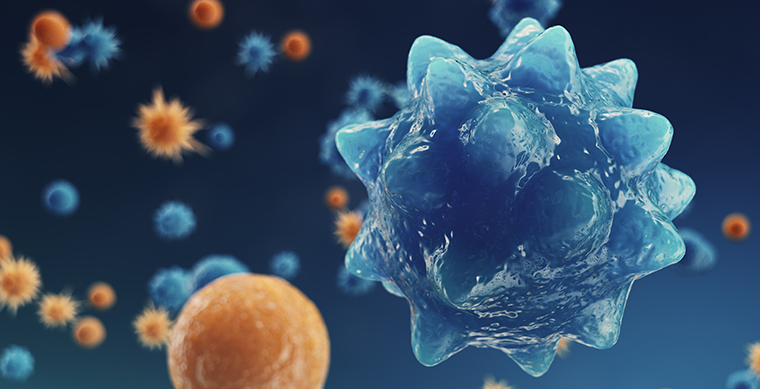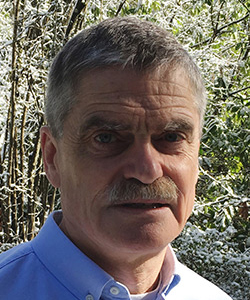
With support from the National Institutes of Health, Michael Chapman, PhD, is leading a study to learn how the adeno-associated virus (AAV) infects human cells. Results of the study may aid in the development of new treatments for genetic diseases such as cystic fibrosis, hemophilia and muscular dystrophy.

A five-year, $3.6 million NIH grant was recently transferred to the University of Missouri following the initiation of the project at Oregon Health and Science University in Portland. Chapman joined MU in July to serve as the chair of the Department of Biochemistry.
The R-35 Outstanding Investigator Award from the NIH is designed to provide long-term support to an experienced investigator with an outstanding record of research productivity. This support is intended to encourage investigators to embark on long-term projects of unusual potential.
Chapman serves as principal investigator on the project, “Adeno-associated virus gene therapy vectors: Molecular interactions on cell entry.” The study will use electron microscopy to visualize how AAV enters human cells and how it evades the immune system.
“The long-term goal of our study is to gain a better understanding of virus-host molecular interactions, which will be a foundation for improving the delivery of DNA in emerging therapies for the treatment of genetic diseases,” Chapman said. “Our research group was the first to visualize AAV at the atomic level using X-ray crystallography and electron microscopy, which enabled us to map the surface structure in detail.”
His research on this topic has been published in Nature, among other journals. Biochemistry is a joint academic unit within the School of Medicine and the College of Agriculture, Food and Natural Resources (CAFNR) at MU.





